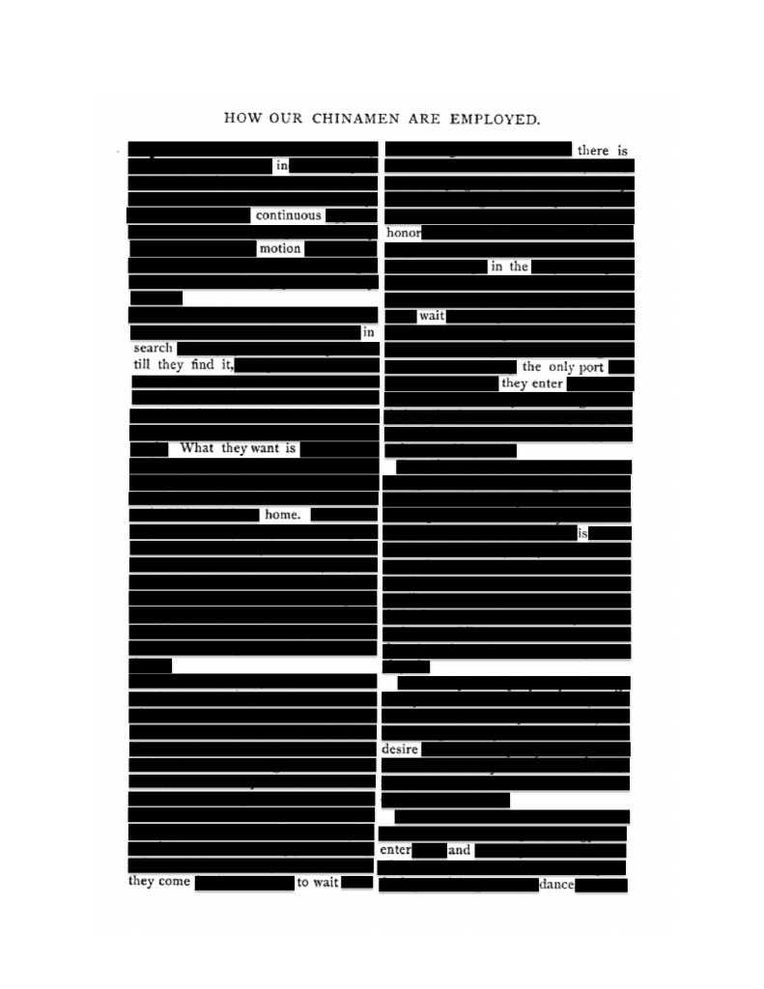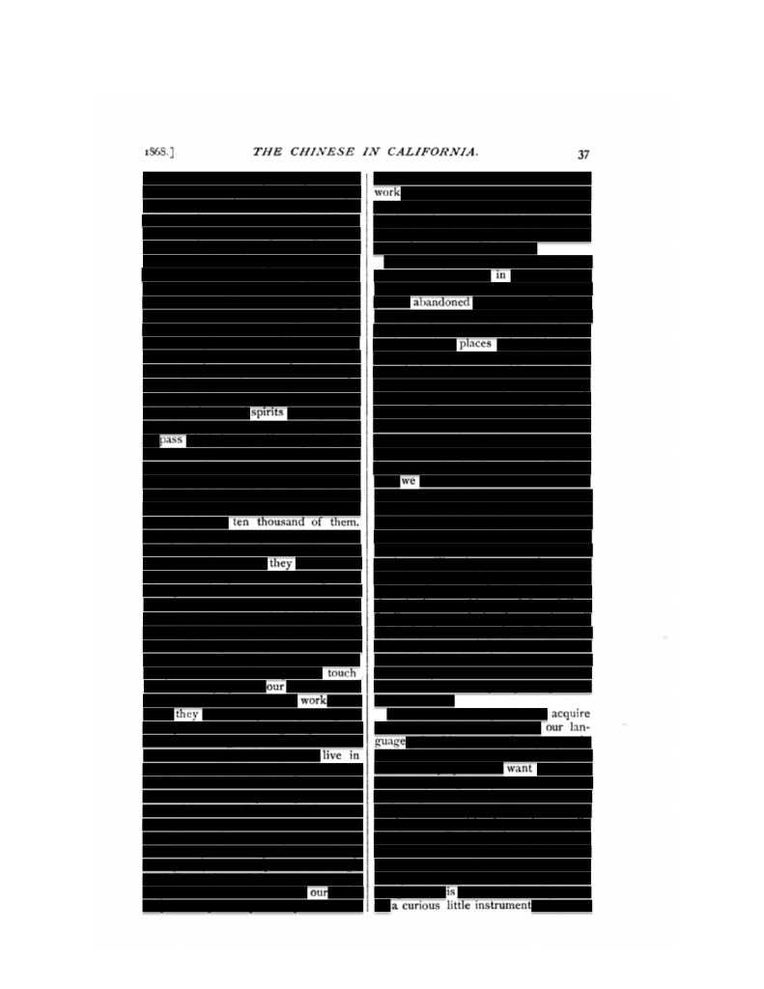Erasure as Repair: A Speculative Poetics of the Archive
From the Series: Un/tracing Empire: Pollinations between the Poetic and Ethnographic
From the Series: Un/tracing Empire: Pollinations between the Poetic and Ethnographic



“How Our Chinamen Are Employed” and “The Chinese in California” are erasure poems of nineteenth century magazine articles from the archives of the Chinese Railroad Workers in North America Project at Stanford University. A poetic strategy that involves blacking out, blanking out, or other techniques of excision in order to manipulate found texts, erasure can excavate new grammars and open up new meanings beyond the surface value or original intention of a text. The erasures of these documents give me a way of reading historical records “against the grain,” of subverting these Othering narratives, which were published in the decades preceding the Chinese Exclusion Act. The bodies and labor of people who were subject/ed to the scrutiny of these types of editorial analysis provided Stanford its extractive wealth for the university’s founding.
More than an attempt to glean information, even if for critical analysis, erasure allows me to reimagine an unrecoverable past through a speculative poetics that makes apparent the gaps and fissures of knowledge production. I draw inspiration from Saidiya Hartman’s “critical fabulation,” which grapples with writing through historical violence in a way that does “more than recount [that] violence” (2008, 2); to instead “both tell an impossible story and to amplify the impossibility of its telling” (2008, 11). Moreover, erasure presents an alternative to the assumption that genres of writing, whether poetry or ethnography, must offer revelation. Through its “selective silence,” erasure “mimics the psychological embodiment of what we have lost” (Leung 2021), playing with and unsettling parallel techniques of state violence, such as censorship, redaction, annihilation, and exclusionary bureaucratic regimes (Sharif 2013).
Bio
Grace H. Zhou is a writer and anthropologist with a PhD from Stanford University. Her research and writing explore transnational intimacies, care and precarity in late capitalist and postsocialist contexts, and the mobility of settler colonial formations. Her poems appear or are forthcoming in Ninth Letter, Narrative Magazine, Beloit Poetry Journal, Frontier Poetry, Longleaf Review, The Margins, and elsewhere. Her poetry chapbook, Soil Called a Country is forthcoming in the autumn (Newfound, 2023). Her work has been supported by the National Science Foundation, Social Science Research Council, Irish Research Council, Kearny Street Workshop, Tin House Workshops, and other organizations. She currently holds a Government of Ireland Postdoctoral Fellowship.
Hartman, Saidiya. 2008. “Venus in Two Acts.” Small Axe 12, no. 2: 1–14.
Leung, Muriel. 2021. “Erasure in Three Acts: An Essay.” Poetry Foundation website, November 1.
Sharif, Solmaz. 2013. “The Near Transitive Properties of the Political and Poetical: Erasure.” Evening Will Come 28.